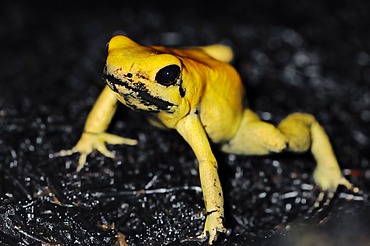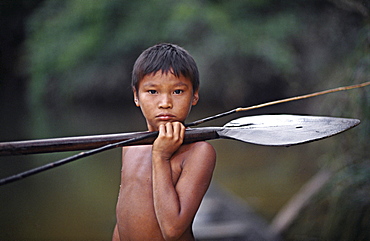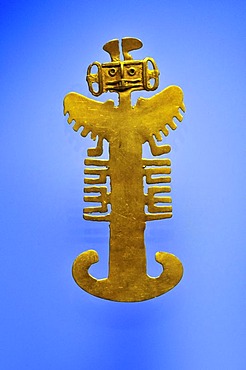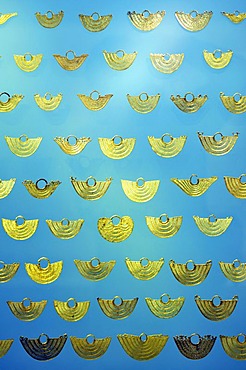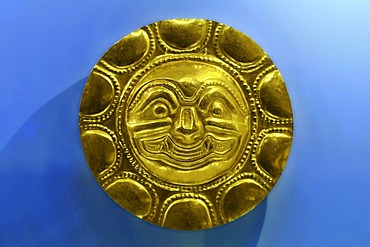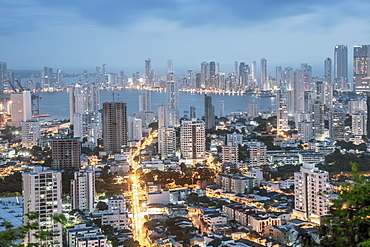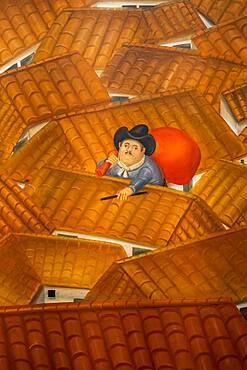Recent searches
Loading...
110-2963 - Masks and handicrafts, Colombia, South America
508-12499 - A boy hanging sisal out to dry on the road to Quindio in Colombia, South America
110-2841 - Jetties, harbour and skyline of the city of Cartagena in Colombia, South America
832-368930 - Neighbors from the traditional Afro-Colombian community meet to make music, Bajamar slum, Buenaventura, Valle del Cauca, Colombia, South America
832-368931 - Old man, Afro-Colombians, playing a barrel drum, Bajamar slum, Buenaventura, Valle del Cauca, Colombia, South America
832-373574 - Singer playing a guitar in a restaurant, Bogota, Colombia, South America
832-367788 - Golden Poison Frog or Golden Dart Frog (Phyllobates terribilis), native to Colombia, in captivity, North Rhine-Westphalia, Germany, Europe
832-368928 - Young woman, Afro-Colombian, in the window of her house, Bajamar slum, Buenaventura, Valle del Cauca, Colombia, South America
832-368932 - Dance group of children in the community center of the Bajamar slum, Buenaventura, Valle del Cauca, Colombia, South America
832-368929 - Neighbors from the traditional Afro-Colombian community meet to make music, Bajamar slum, Buenaventura, Valle del Cauca, Colombia, South America
788-4185 - Portrait of a market vendor carrying a basket on her head, Cartagena, Colombia
1196-227 - Wearing tree bark cloth masks and skirts, dancers representing fish spirits are invited during the season of the peach palm harvest to drink the juice. it is a feast and ritual exchange: the host group offers the spirits large quantities of peach palm juice, smoked meat and fish, and shaman-blessed coca and snuff. the visitors are the costumed dancers impersonating animal spirits. people eat the meat and fish, animal spirits receive the fruits of peach palm, which are cultivated, harvested, and processed by humans. this exchange expresses the idea that people and animals depend on each other for survival and reproduction. vaupes basin, eastern colombia amazon, population: 600
1196-111 - The idea of the interconnectedness of all things is central to the tribal way of looking at the world. practical knowledge of the environment, of crops and medicines, of hunting and fishing, is a byproduct of it. the makuna believe that human beings, animals, and all of nature are parts of the same one. animals and fish live in their own communities, which are just like human communities, with their chiefs, their shamans, their dance houses, their songs, and their material possessions. when human peoples dance in this world, the shaman invites the animal people to dance in theirs. if humans do not dance and shamans do not offer spirit food to the animal people, the animals will die out and there will be no more game left in the world. for the makuna the radical disjunction so characteristic of western thought between nature and culture, men and animals, dissolves. eastern colombia amazon, vaupes region, population: 600
788-13215 - Damaged pier in the sea, Providencia y Santa Catalina, San Andres y Providencia Department, Colombia
857-92845 - Jesus Alberto Dazza scoops fertilizer on the base of young coffee plants in the rural highlands of Colombia's coffee axis. In the background, Luis Fernandez (center), Dario Valencia (left), Jaime Arias (left)
797-1311 - COLOMBIA People Kogi Ramonil and Juancho two Kogi priests from the Sierra de Santa Marta against a backdrop of misty green hills Named Ramonil and Juancho
797-1918 - COLOMBIA Amazonas Santa Isabel Young Macuna boy standing in a hole lined with Heliconia leaves used for storing manioc starch.
797-3488 - COLOMBIA Vaupes Region Tukano Tribe Boy playing the carizu / panpipes at the maloca s river port on the rio Piraparana Tukano / Makuna Indigenous Tribes rio Piraparana North West Amazonia Amazon American Colombian South America Vuapes Columbia Hispanic Indegent Latin America Latino Vaupes Tukano Tucano Turkano
797-3964 - COLOMBIA Choco Embera Indigenous People Embera man using single oar to steer wooden dug out canoe along rio Baudo. Pacific coastal region boat piragua tribe
797-3965 - COLOMBIA Choco Embera Indigenous People Hueso Embera family head using axe to fell large tree to make family dug-out canoe. Pacific coastal region tribe
797-3966 - COLOMBIA Choco Embera Indigenous People Embera man using axe or adze . to hollow out dug out canoe from large felled hardwood tree.Once completed canoe is dragged through forest to riverside home where final shaping takes place Pacific coastal region boat canoa tribe American Colombian Colombia Hispanic Indegent Latin America Latino Male Men Guy South America Pacific coastal region boat piragua tribe American Colombian Columbia Hispanic Indegent Latin America Latino Male Men Guy South America Male Man Guy One individual Solo Lone Solitary 1 Single unitary
776-1675 - Hotel Sienna in Old Walled City District, Cartagena City, Bolivar State, Colombia, South America
797-4791 - Group of Kogi Mamas or Holy Men signatories, Kogi, Colombia
753-310 - Boy walks his bike past colorful architecture next to Jardin's plaza, Jardin, Antioquia, Colombia, South America
753-309 - Freshly restored Fernando Botero statue in Botero Plaza, Medellin, Antioquia, Colombia, South America
832-310399 - Pre-Columbian stone statue, San Agustin culture, prehistoric culture, southern Colombia, South America
685-1846 - Ripe coffee beans, Recuca Coffee Plantation, near Armenia, Colombia, South America
685-1850 - El Caney Plantation and view over coffee crops towards the Andes Mountains, near Manizales, Colombia, South America
685-1857 - Fort San Felipe, Spanish colonial fort dating from the 16th century, UNESCO World Heritage Site, Cartagena, Colombia, South America
832-219629 - Pre-Columbian goldwork collection, mythical bird with human head, Gold Museum, Museo del Oro, Bogota, Colombia, South America
832-219635 - Pre-Columbian goldwork collection, earrings, Gold Museum, Museo del Oro, Bogota, Colombia, South America
832-219627 - Pre-Columbian goldwork collection, solar disk, Gold Museum, Museo del Oro, Bogota, Colombia, South America
832-219623 - Pre-Columbian goldwork collection, female Cacique, Gold Museum, Museo del Oro, Bogota, Colombia, South America
832-219625 - Pre-Columbian goldwork collection, hairpins, Gold Museum, Museo del Oro, Bogota, Colombia, South America
832-219638 - Pre-Columbian goldwork collection, jaguar as a symbol for the regenerative powers of gold and the Sun, Gold Museum, Museo del Oro, Bogota, Colombia, South America
832-153269 - Bogota Cathedral, Plaza de Bolivar, Bogota, Colombia, South America
832-141132 - Poor dwellings, stilt houses, mangrove area in the estuary of the Rio Anchicaya river in the Pacific, Bajamar slum, Buenaventura, Valle del Cauca, Colombia, South America
832-141134 - Traditional district, slum with stilt houses on the mangrove banks of the Pacific coast at high tide, Buenaventura, Valle del Cauca, Colombia, South America
1194-396 - Colombia sprawling slum development at altos de cazuca, bogota
832-55354 - Museum and memorial at the Hacienda Napoles, former estate of drug baron Pablo Escobar, head of the Medellin Cartel, Puerto Triunfo, Antioquia, Colombia, South America
1185-266 - Red Eyed Tree Frog (Agalychnis Callidryas), captive, Colombia, South America
814-1445 - View over the Barrios Pobre of Medellin, where Pablo Escobar had many supporters, Colombia, South America
814-1447 - The collection of cars of Pablo Escobar, Ranch Napoles, Medellin, Colombia, South America
814-1446 - Colombian Police forces in front of the ex-entrance of Ranch Napoles, property of Pablo Escobar, Medellin, Colombia, South America
814-1448 - Visting the Pablo Escobar house at the Ranch Napoles, Medellin, Colombia, South America
832-45201 - Sculpture by the artist and sculptor Fernando Botero in Plaza Botero, Medellin, Colombia, South America, Latin America, America
733-5122 - Jardin Botanico Joaquin Antonio Uribe (Botanical Gardens), Medellin, Colombia, South America
733-5120 - Art work by Fernando Botero, Museo de Antioquia, Botero Museum, Medellin, Colombia, South America
733-5117 - Sculptures by Fernando Botero, Plazoleta de las Esculturas, Medellin, Colombia, South America
733-5124 - Jardin Botanico Joaquin Antonio Uribe (Botanical Gardens), Medellin, Colombia, South America
733-5155 - Rappelling on Juan Curi waterfall, adventure sports capital of Colombia, San Gil, Colombia, South America
733-5160 - Tourist paragliding in San Gil, adventure sports capital of Colombia, San Gil, Colombia, South America
733-5178 - Parish Church in Plaza Mayor, largest public square in Colombia, colonial town of Villa de Leyva, Colombia, South America
733-5106 - Centro Comercial Palacio Nacional, former presidential palace turned commercial center, Medellin, Colombia, South America
733-5046 - Tourists bathing in mud bath, Volcan de Lodo El Totumo, Mud Volcano, Colombia, South America
733-5153 - Rappelling on Juan Curi waterfall, adventure sports capital of Colombia, San Gil, Colombia, South America
733-5097 - Metrocable gondola, Medellin, Colombia, South America
1185-267 - Red Eyed Tree Frog (Agalychnis Callidryas), captive, Colombia, South America
1113-36857 - Woman in colorful costume with bowl of fruit on head, Cartagena, Bolivar, Colombia
483-2024 - Women in traditional costume selling fruit in Cartagena, Colombia, South America
857-63531 - A "Palanquera" sells sweets from a large metal bowl she carries on her head in Cartagena, Colombia in August 2007.
857-51223 - Mukuna man relaxes on hammock. Eastern Colombia Amazon, Vaupes region.
1218-234 - Couple sitting in a horse and carriage, Old Walled-in City, Cartagena, Colombia, South America
1218-231 - Fruit street vendors, Cartagena, Colombia, South America
1194-398 - Colombia sprawling slum development at altos de cazuca, bogota
1194-403 - Colombia in the slums of los altos de cazuca, bogota
1194-342 - Colombia woman breast feeding her baby beside the rio magdalena, barrancabermeja. Fishermen go passed in a dug our canoe
1194-343 - Colombia woman breast feeding her baby beside the rio magdalena, barrancabermeja. Fishermen go passed in a dug our canoe
1218-235 - Couple posing in the street, Old Walled-in City, Cartagena, Colombia, South America
1218-233 - Couple posing, Old Walled-in City, Cartagena, Colombia, South America
857-90643 - Dan Treadway looking out over winter clouds and mountains on skis in Knights Inlet, British Colombia, Canada, April 7th 2007, Canada
1225-397 - An ancient gold mask at the Museo Del Oro, Bogota, Colombia, South America
1225-401 - An ancient gold mask at the Museo Del Oro, Bogota, Colombia, South America
1225-396 - A Fernando Botero sculpture at the Museo Botero, Bogota, Colombia, South America
1225-1107 - A girl plays in the waves at Palomino on the Caribbean coast of Colombia, South America
1225-1106 - A girl plays in the waves at Palomino on the Caribbean coast of Colombia, South America
1225-1098 - Woman dressed in traditional clothes cutting and selling fruit in the colorful old town of Cartagena, Colombia, South America
1184-813 - Traditional dancing in Cartagena, Colombia, South America
1218-573 - Man walking on the beach in Tayrona National Park, Colombia, South America
1176-959 - Skyline of downtown Cartagena city showing modern apartment blocks in the Bocagrande neighbourhood, Cartagena, Colombia, South America
1176-957 - Palanquera women in Cartagena city, Colombia, South America
1297-9 - A statue of Simon Bolivar, in Parque Bolivar, Medellin, Colombia, South America
1297-274 - Playa Blanca beach in Cartagena, Colombia, South America
1245-1372 - Street of Getsemani, Cartagena, Bolivar Department, Colombia, South America
1245-1436 - Handicrafts in Raquira, Boyaca Department, Colombia, South America
1245-1426 - Embalse del Penol, elevated view from El Penon de Guatape (Rock of Guatape), Antioquia Department, Colombia, South America
1245-1456 - El Barrio Pablo Escobar, Medellin, Antioquia Department, Colombia, South America
1245-1464 - Colibri Hummingbird, La Montana, Salento, Quindio Department, Colombia, South America
1242-282 - Woven baskets, display of traditional handicrafts, Bogota, Colombia, South America
1242-285 - The produce section of Paloquemao market, Bogota, Colombia, South America
848-2068 - Aerial view by drone of Playa los Angeles, Magdalena Department, Caribbean, Colombia, South America
1350-866 - `El Ladrón´ by Fernando Botero, Botero Museum, Bogota, Colombia
1350-872 - Poporo and stick, Pre-Columbian goldwork collection, Gold museum, Museo del Oro, Bogota, Colombia, America
1350-1384 - metro, subway, A line between Prado station and Hospital station, city center, skyline, Medellín, Colombia
1350-877 - The Offering Raft or La Balsa de la ofrenda, Pre-Columbian goldwork collection, Gold museum, Museo del Oro, Bogota, Colombia, America
848-2122 - Portrait of Sandia the watermelon seller, Getsemani Barrio, Cartagena, Bolivar Department, Colombia, South America







